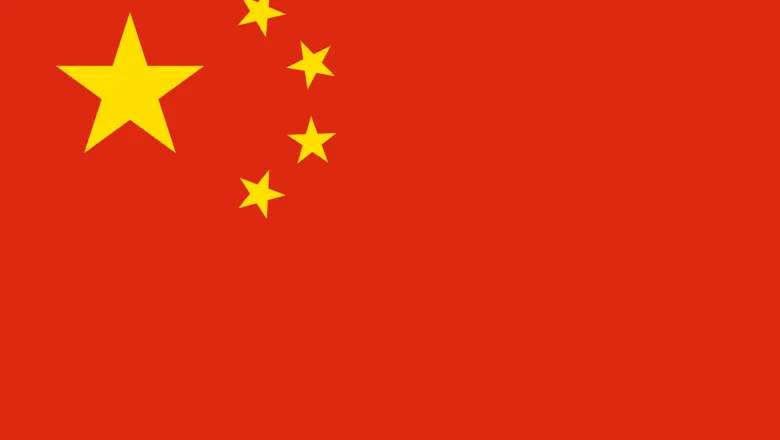17 September 2014
China and proliferation: significant progress, but risks remain
Over the past two decades, significant positive advances have been seen in China’s non-proliferation policies. Since the early 2000s, China has worked to establish an export control system and made ongoing efforts to align the country’s system with international supplier regimes. However, despite these positive developments, there is evidence that the non-proliferation practices of the Chinese authorities have often fallen short of government policies. Several risk areas remain; this article will consider China’s export controls and the risks posed by Chinese entities.

China’s Export Control System
Since 2002, China has worked to develop a system of export controls which is broadly aligned with international standards. In 2004 China joined the Nuclear Suppliers Group; the country has also pledged to adhere to the MTCR, and as a UN member state it must comply with UN sanctions resolutions. China’s export control system is in place to ensure that the country meets its obligations in this regard. It is administered by the Ministry of Commerce (MOFCOM) and draws on the expertise across government.
However, China’s relatively weak capacity to administer and enforce its controls presents a significant challenge.[1] In some specific cases there has also been a lack of will to enforce or follow up on breaches of legislation.[2] The growth of the Chinese industrial sectors capable of producing or exporting sensitive goods also poses a significant regulatory challenge. China is clearly expanding its capacity to administer and to enforce export control legislation. However, good intentions alone will not suffice if adequate resources are not invested in enforcement, outreach and engagement.
To facilitate industry’s compliance with the controls, China has made some attempts to engage its private sector on non-proliferation and export compliance issues. However, these efforts have been relatively limited in scope to date. The implementation of a comprehensive private sector engagement strategy is required in order to minimise proliferation risks. The development of a stronger and more pervasive compliance culture would help China overcome some of the challenges posed by a rapidly growing private sector.
Proliferation Risks posed by China
When considering the nature of proliferation risks in China, a number of key dimensions of the problem can be highlighted. These risks are both posed by the Chinese government, but perhaps more significantly by private sector entities operating to divert goods onto programmes of concern.
While China has put in place a system of export controls, there are still shortcomings in how the system is operationalised. In some cases, this has allowed for the transfer of sensitive goods to WMD programmes. In short, there is a risk of continued proliferation posed by the interpretation of the licensing criteria by the Chinese authorities in licensing transfers that abide by the letter, but not necessarily the spirit, of national legislation or international commitments. A key example here is the apparent reluctance of the Chinese authorities to invoke catch-all controls, or to prevent the transfer of non-controlled goods to WMD programmes.[3]
However, by far the most significant proliferation risk posed by China relates to Chinese companies. Many Chinese businesses, intentionally or due to lack of awareness, still seek to transfer goods without an appropriate licence or authorisation, and to programmes of concern. The reluctance of the Chinese authorities to follow up on cases of illicit transactions can facilitate this. The types of Chinese entities involved in WMD-related trade have evolved over time. During the 1990s and early 2000s, numerous state-owned entities were sanctioned by the US for their involvement in proliferation.[4] Many of these enterprises have since altered their behaviour and put in place compliance programmes.[5] Now risks are more frequently documented as being posed by entities of the Chinese private sector.[6]
Alongside exporters of sensitive goods, the Chinese financial and transportation sectors continue to be utilised by proliferators, especially with regard to China’s neighbour North Korea.[7]The risks posed by Chinese intermediaries, and the role of transportation hubs, have been found to constitute some of the most significant challenges to the non-proliferation of WMD.
Doing Business in China
Exporters doing business in China should take into account the risks posed by Chinese entities to avoid involvement in illicit trade.Before entering business relationships with Chinese companies, firms should conduct extensive due-diligence. Steps should be taken to ensure the Chinese company has in place a rigorous export compliance system. If in doubt, firms should contact their national authorities.
[1] Chin-Hao Huang, “Bridging the gap”: Analysis of China’s export controls against international standards’, Final Project Report to the Foreign and Commonwealth Office Counter-Proliferation Programme (April 2012), 14.
[2] US Embassy, Beijing, ‘China Urged to Investigate And Halt Shipment Destined for Iran’s DIO’, 08BEIJING2674, 9 July 2008, http://wikileaks.org/cable/2008/07/08BEIJING2674.html, accessed 20 December 2012.
[3] Secretary of State, ‘Missile Technology Control Regime (MTCR): China’s Record On Controlling Missile-related Exports’ 1 October 2008, Cable no. 08STATE105132, https://wikileaks.org/plusd/cables/08STATE105132_a.html, accessed 8 February 2013; ‘PRC Urged to Investigate A Chinese Firm’s Missile-related Transfers to Iran; Update Sought on PRC Investigation of a Second Chinese Firm’, 08BEIJING1463,16 April 2008, http://wikileaks.org/cable/2008/04/08BEIJING1463.html, accessed 20 December 2012.
[4] See for example the sanctions on NORINCO P. C. Saunders and S. C. Lieggi, ‘What’s behind US Non-proliferation Sanctions against NORINCO’, James Martin Center for Non-proliferation Studies; with Kan, ‘China and Proliferation’, p.73.
[5] See for example the case of China Great Wall Industry Corporation (CGWIC) ‘US Removes Chinese Firm from Sanctions Blacklist Over Iran’, Associated Foreign Press, 19 June 2008, http://afp.google.com/article/ALeqM5h8UAMuXVNkqRYXpTh9iHspgJSz5g, accessed 19 February 2013.
[6] See for example the case of Li Feng Wei: William Maclean and Ben Blanchard ‘Chinese trader accused of busting Iran missile embargo’, Reuters, 1 March 2013, http://www.reuters.com/article/2013/03/01/us-china-iran-trader-idUSBRE9200BI20130301, accessed 1 July 2013.
[7] See for example: Julian Ryall, “Chinese Firms Breaking UN Embargo on North Korea”, The Telegraph, 8 June 2012; Jack Kim & Louis Charbonneau, ‘North Korea uses Cash Couriers, false names to outwit sanctions’, Reuters, 15 February 2013, http://www.reuters.com/article/2013/02/16/us-korea-north-money-idUSBRE91F00K20130216, accessed 18 February 2013.
